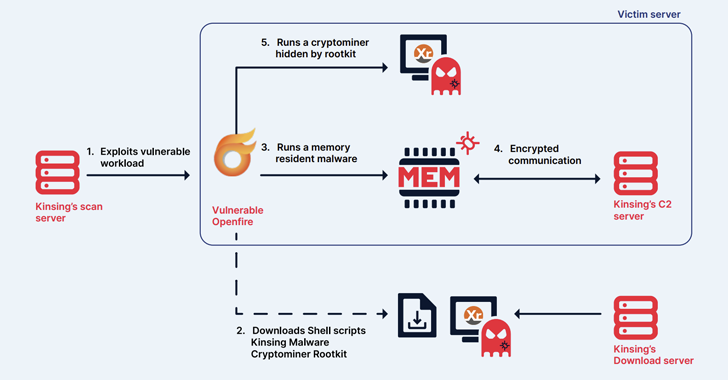Experts Uncover Passive Method to Extract Private RSA Keys from SSH Connections

A new study has demonstrated that it’s possible for passive network attackers to obtain private RSA host keys from a vulnerable SSH server by observing when naturally occurring computational faults that occur while the connection is being established.
The Secure Shell (SSH) protocol is a method for securely transmitting commands and logging in to a computer over an unsecured network. Based on a client-server architecture, SSH uses cryptography to authenticate and encrypt connections between devices.
A host key is a cryptographic key used for authenticating computers in the SSH protocol. Host keys are key pairs that are typically generated using public-key cryptosystems like RSA.
“If a signing implementation using CRT-RSA has a fault during signature computation, an attacker who observes this signature may be able to compute the signer’s private key,” a group of academics from the University of California, San Diego, and Massachusetts Institute of Technology said in a paper this month.
In other words, a passive adversary can quietly keep track of legitimate connections without risking detection until they observe a faulty signature that exposes the private key. The bad actor can then masquerade as the compromised host to intercept sensitive data and stage adversary-in-the-middle (AitM) attacks.
The researchers described the method as a lattice-based key recovery fault attack, which allowed them to retrieve the private keys corresponding to 189 unique RSA public keys that were subsequently traced to devices from four manufacturers: Cisco, Hillstone Networks, Mocana, and Zyxel.
It’s worth noting that the release of TLS version 1.3 in 2018 acts as a countermeasure by encrypting the handshake that establishes the connection, thus preventing passive eavesdroppers from accessing the signatures.
“These attacks provide a concrete illustration of the value of several design principles in cryptography: encrypting protocol handshakes as soon as a session key is negotiated to protect metadata, binding authentication to a session, and separating authentication from encryption keys,” the researchers said.
The findings come two months after the disclosure of Marvin Attack, a variant of the ROBOT (short for “Return Of Bleichenbacher’s Oracle Threat”) Attack which allows a threat actor to decrypt RSA ciphertexts and forge signatures by exploiting security weaknesses in PKCS #1 v1.5.












